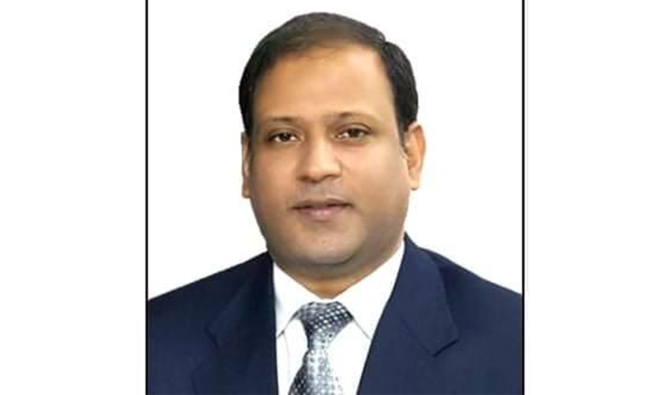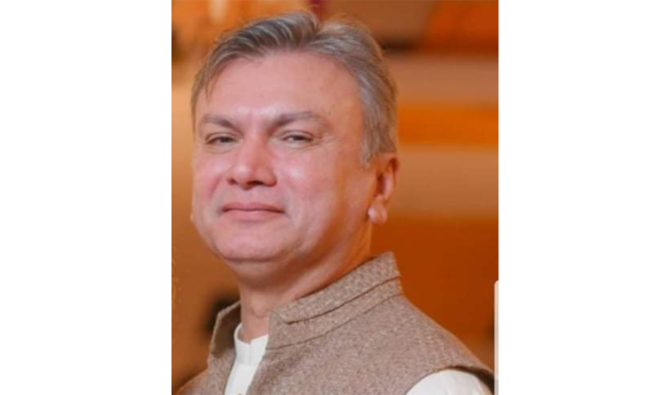RIYADH: The frontline battle against the coronavirus disease (COVID-19) outbreak being waged in hospitals throughout Saudi Arabia has been reinforced by a dedicated army of expatriate health workers.
Foreign medical experts have been joining forces with their Saudi counterparts to put their lives on the line in the ongoing fight to defeat the killer virus.
And some of the brave expat health professionals have been speaking to Arab News about the highs and lows of working in the Kingdom during the pandemic.
Dr. Shaikh Abdullah, who is a member of the UK-based Royal College of Pediatrics and Child Health (MRCPCH), works with the Ministry of National Guard Health Affairs, in Riyadh. He told Arab News: “Working in pediatric emergency at the frontline, I deal with patients who may or may not be COVID-19 positive, so I always need to be prepared in protective gear.

Dr. Shaikh Abdullah.(Supplied)
“Although at work we follow the guidelines or health advisories issued by the local protocols, which includes temperature checks, using hand sanitizer, and wearing personal protective equipment (PPE), there is no doubt that we are facing unprecedented circumstances. This pandemic, which is a bio-threat, is the most serious global crisis of our generation.
“Health care staff, who like me are on the frontline of this fight, face stress because it takes a serious psychological toll in terms of feelings of extreme vulnerability, uncertainty and threat to life, alongside somatic and cognitive symptoms of anxiety and psychological distress,” he said.
Abdullah added that one of his biggest fears working in the accident and emergency department was contracting COVID-19 and passing it on to his family.
“When I return home after being on duty, I have my family and kids, but I especially fear for my wife who is high risk. She is on a biological agent for her rheumatoid arthritis and is vulnerable to any type of infection because of low immunity,” he added.
Recalling the initial days of the COVID-19 outbreak in March, Abdullah said: “As soon as I returned from duty, I would take all the precautions such as washing my hands with soap and taking a shower, but as usual my little daughter would run toward me for a hug. I could not help but try to push back but failed to maintain a distance, asking her to step back until I was safe after taking necessary precautions.
“It took time for her to come to terms with the situation and me and my wife had to counsel her for several days telling her how dangerous it was.”
He pointed out that wearing PPE for long periods of time caused breathing difficulties and coupled with limited access to toilets and water resulted in physical and mental fatigue.
Abdullah said he had experience in treating patients with Middle East Respiratory Syndrome (MERS), a viral respiratory illness.
“I have been dealing with coronavirus for a while and coped with it, but this time it is very contagious and the sense of anxiety and distress I feel is much more than before.
“Yet despite everything, my pride at being on the frontline helping people is as clear as the realization that it is only a question of when, rather than if, I get COVID-19. I do not worry about getting unwell. Somehow, as a doctor, you develop an illusion of being invincible,” he added.
Dr. Mansour Memon, a Pakistani doctor based at a Jeddah hospital, told Arab News that working during the COVID-19 crisis was a different experience that required physical fitness. “At work, healthcare providers have to follow the given guidelines, or the health advisories issued by the local protocols.

Dr. Mansour Memon. (Supplied)
“Once we return home after duty, we follow personal hygiene steps such as placing shoes and socks at the doorstep, sanitizing ourselves properly, putting clothes in a secure place, and washing them routinely in hot water.
“As a health worker, I follow best health practices including the use of PPE such as surgical face masks, gloves and scrubs, ensuring hand and overall body hygiene, and having a nutritious diet to build up the immune system,” Memon added.
He said health workers were risking their lives to protect others during the COVID-19 pandemic.
“Healthcare providers well understand that these are traumatic times and an entirely different ball game, and that they face unprecedented experiences both in their professional and personal hemispheres, with knock-on effects and challenges in their family lives.”
Dr. Kifaya Ifthikar, a Sri Lankan doctor working in Riyadh, said: “For healthcare workers, wearing PPE in itself is a Herculean task. We spend hours in this uncomfortable gear. Often it is difficult to breathe in PPE and then we isolate ourselves from our families when we go home, so as not to spread any infections.”
She added that doctors were balancing the care of patients, communities, and families, while putting their own lives on the line.
“Our community must try as much as possible to maintain social distancing and refrain from going outside for non-essential reasons so that we may be triumphant in this battle against COVID-19,” Ifthikar said.

























